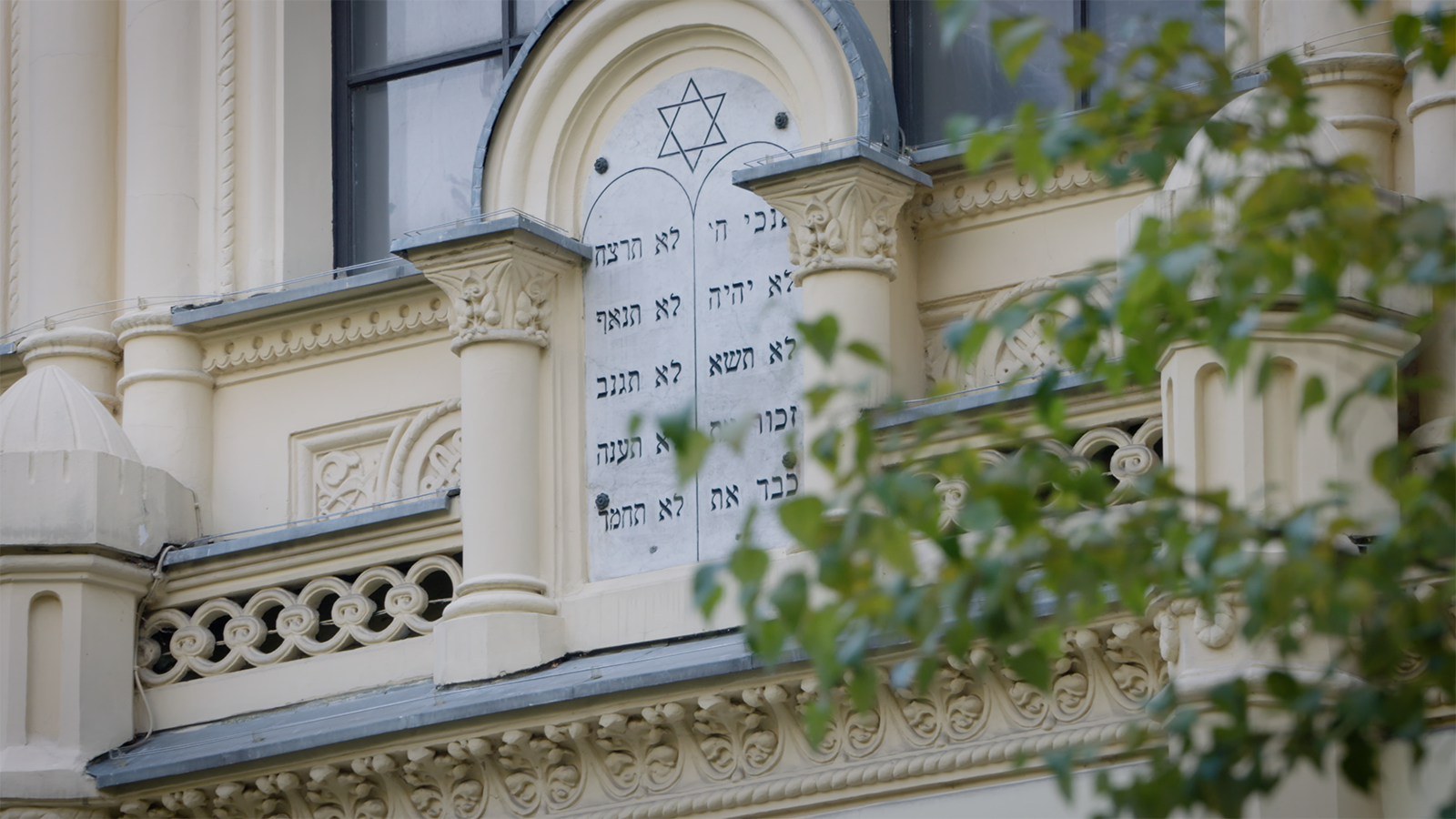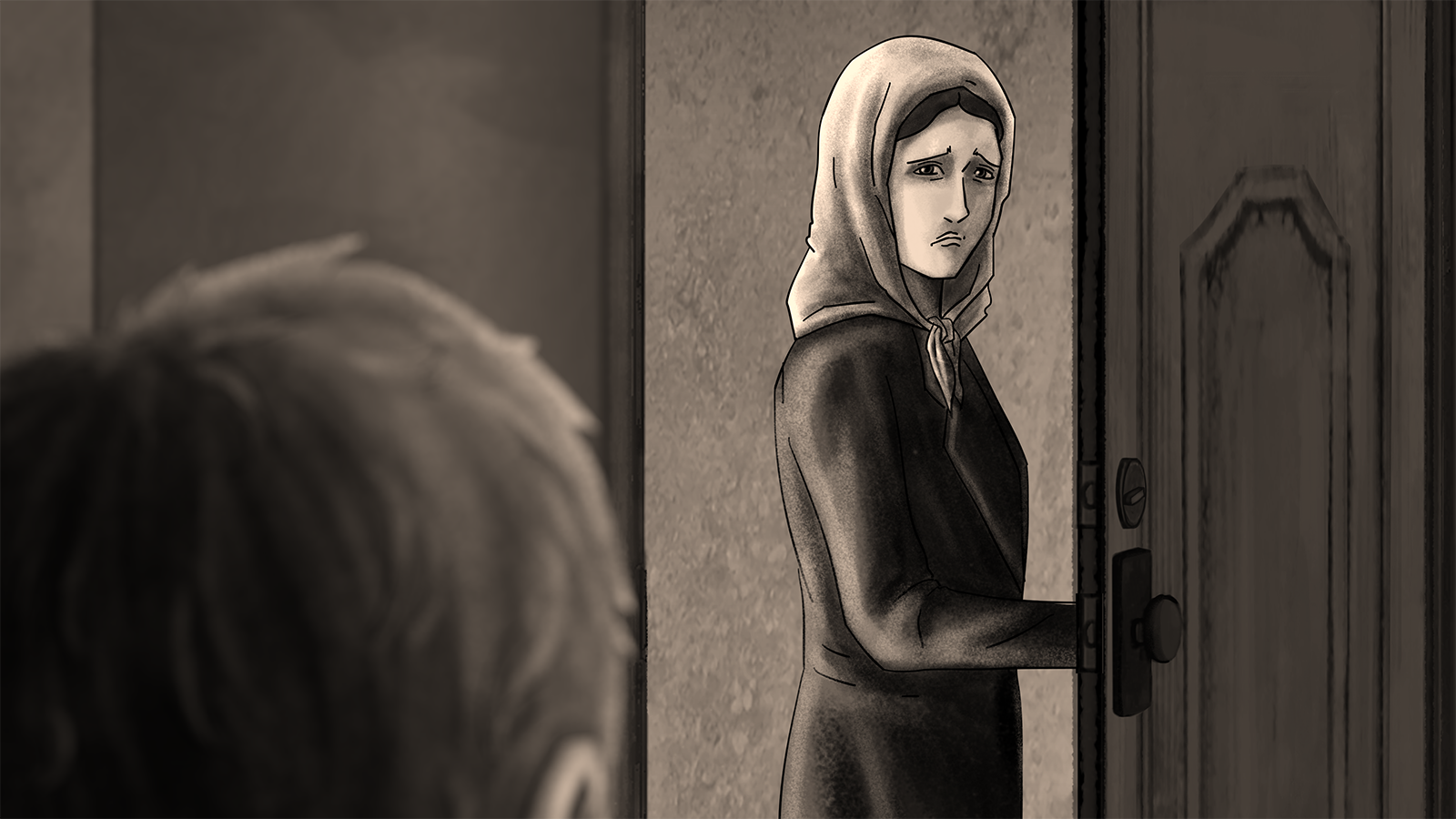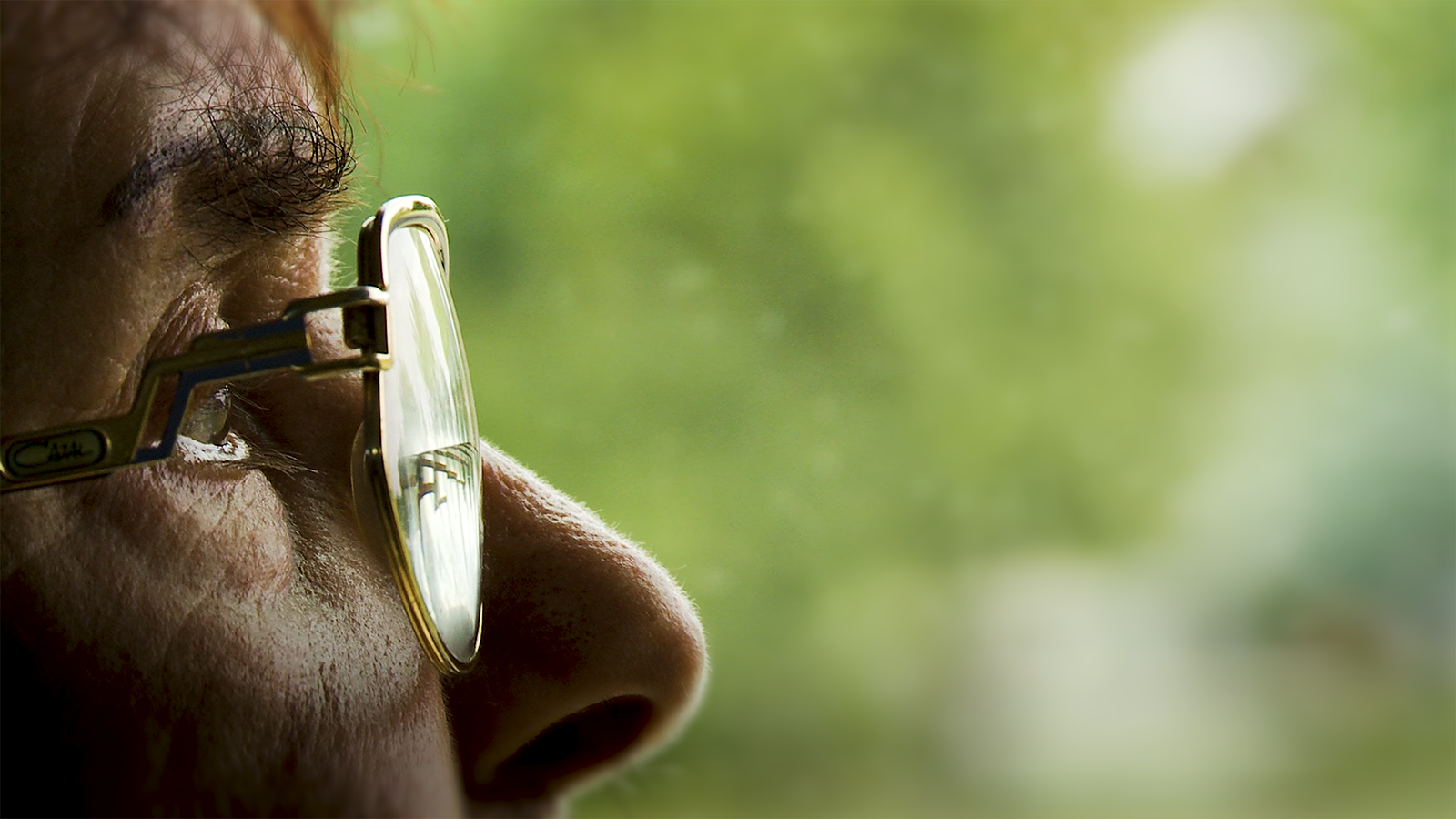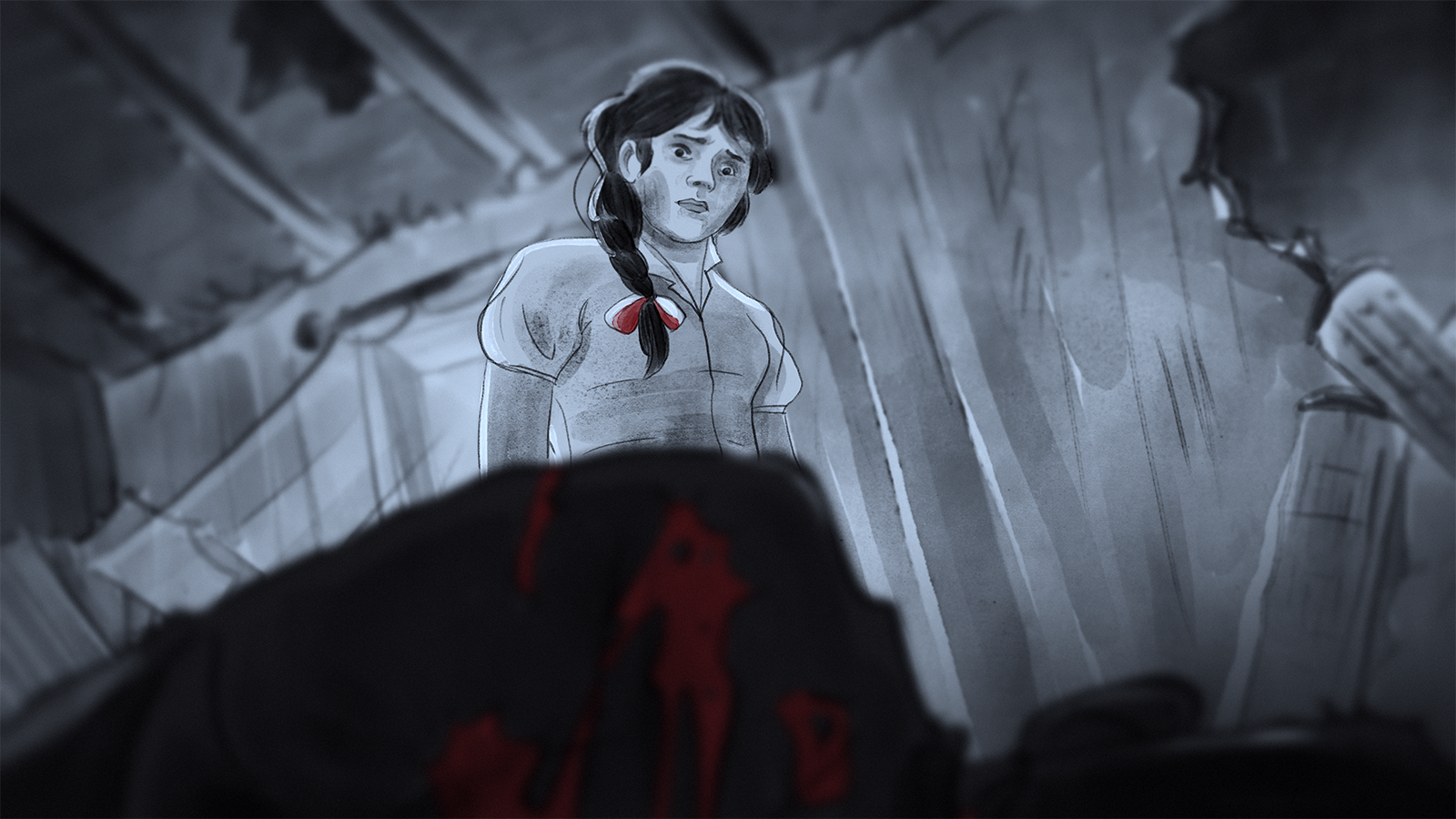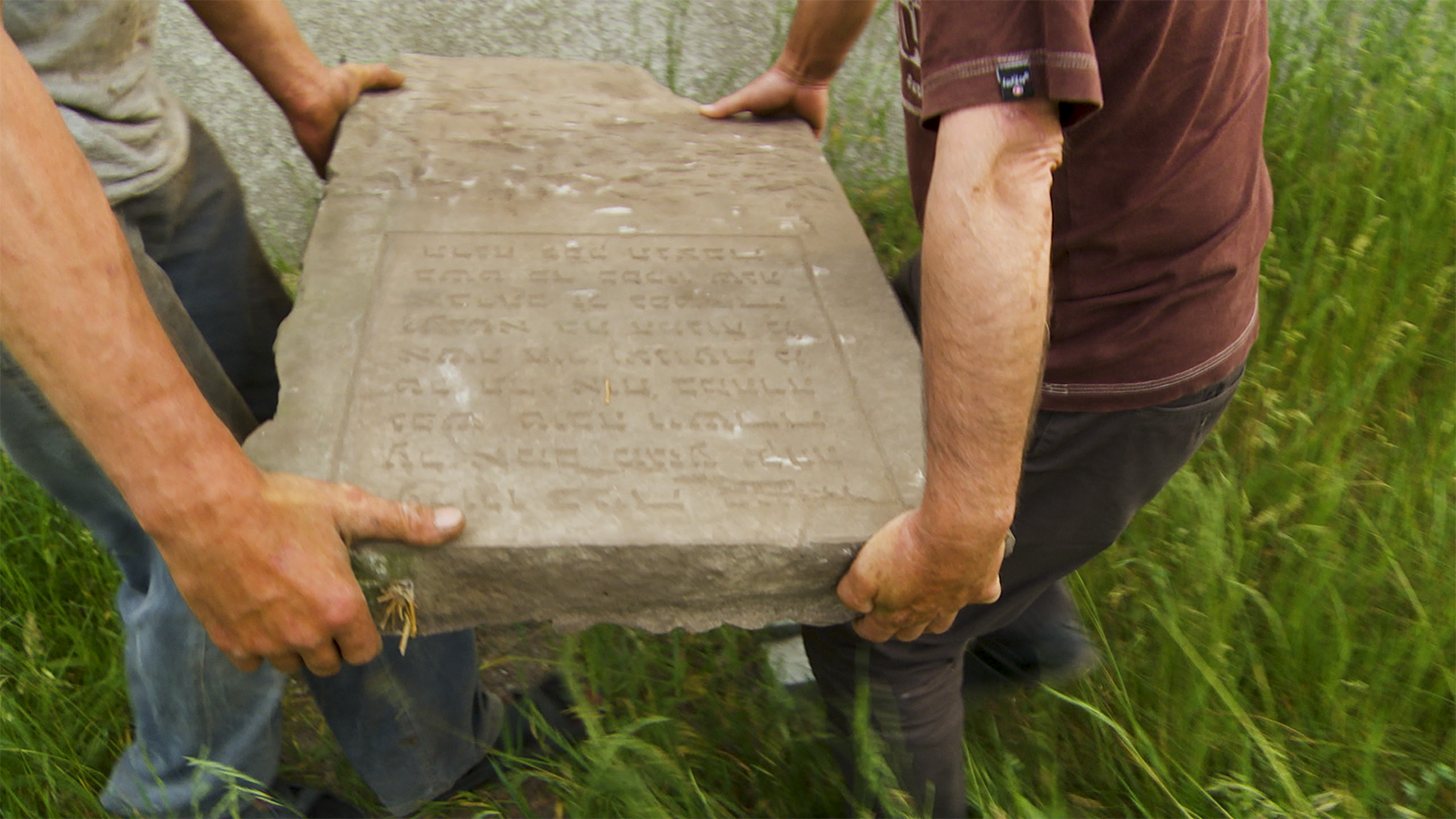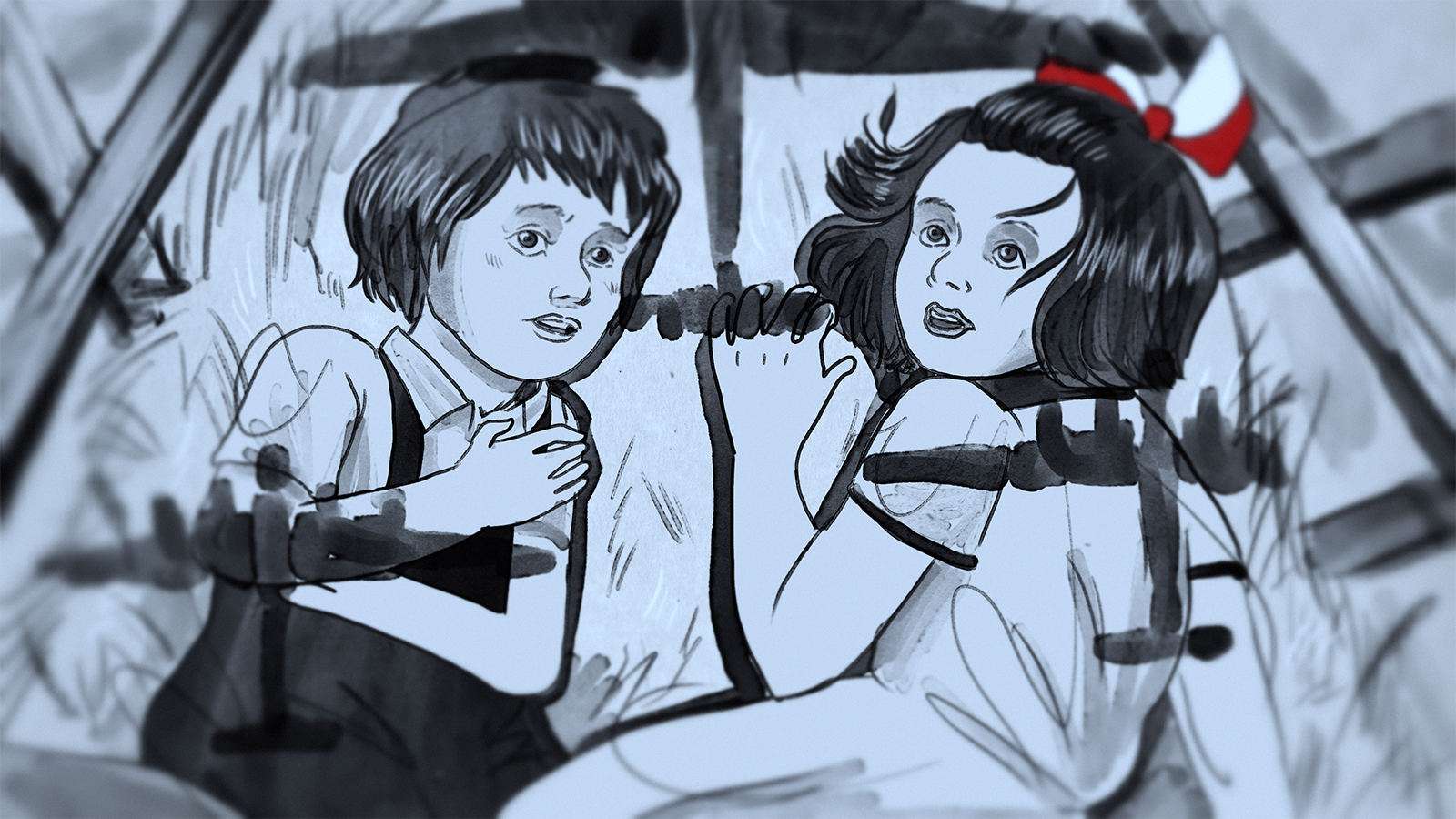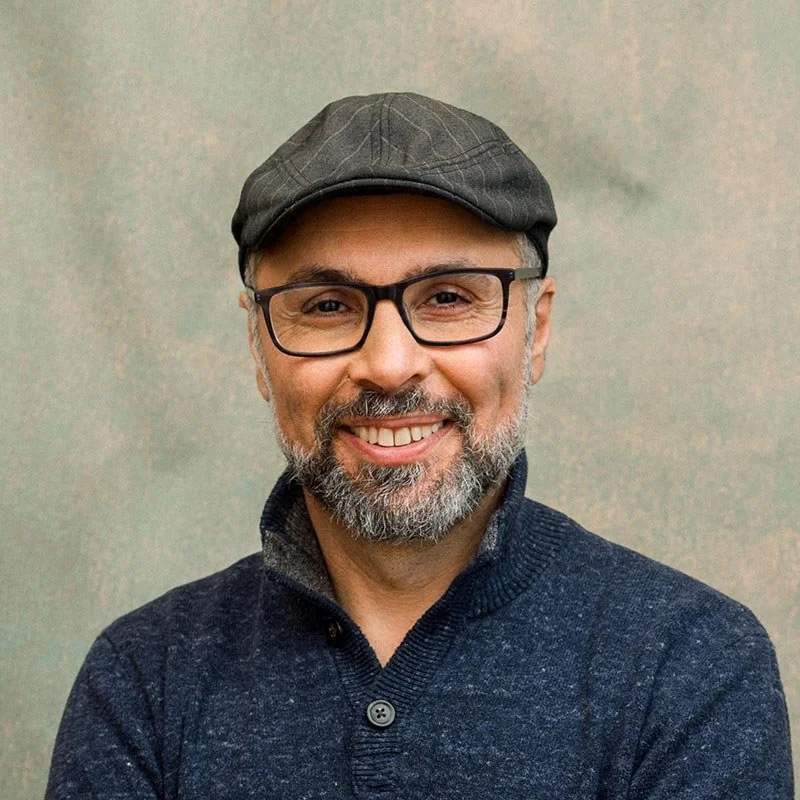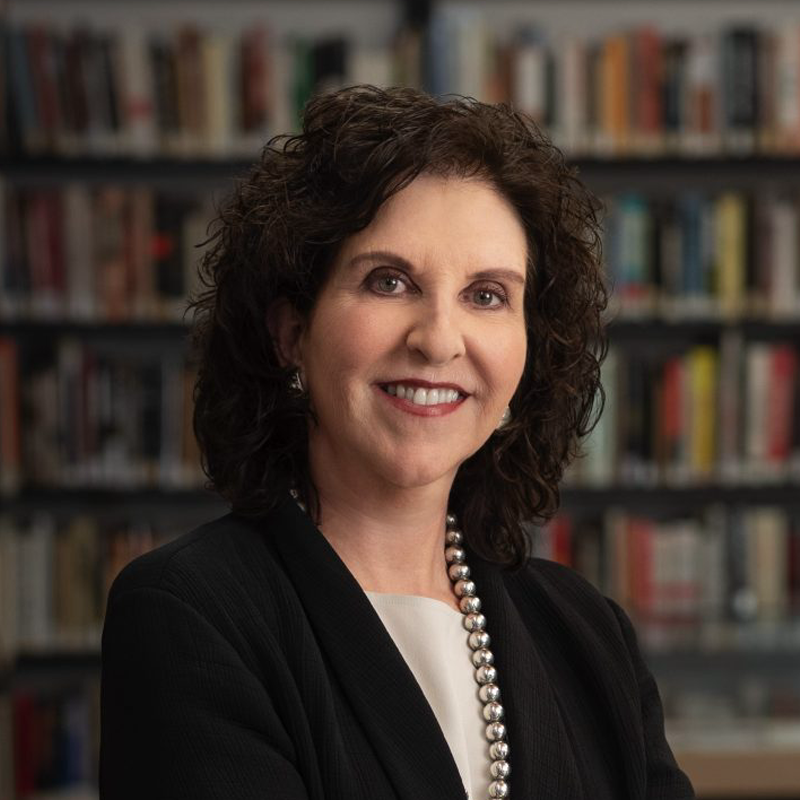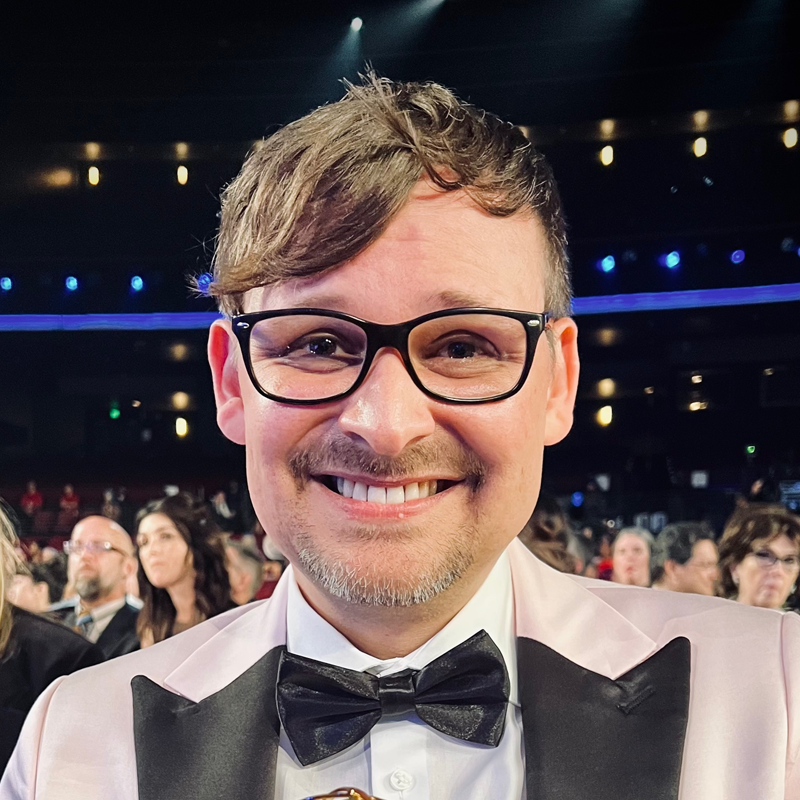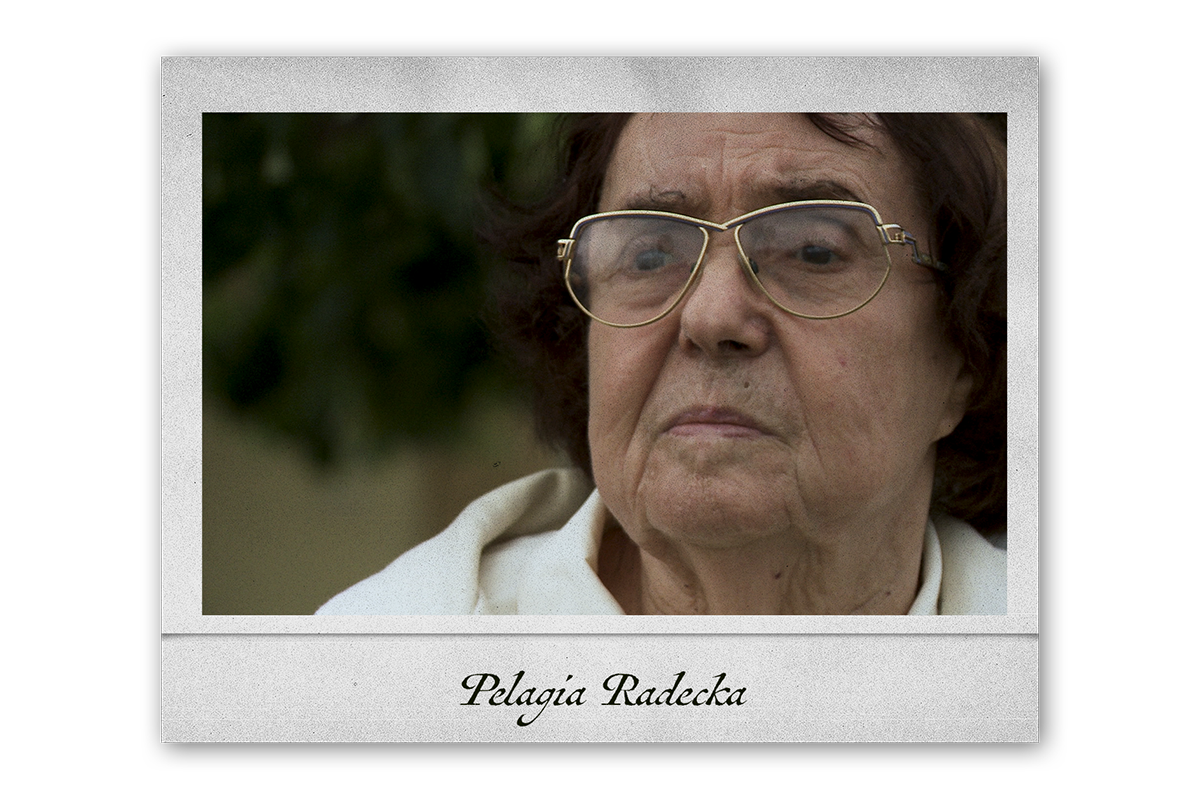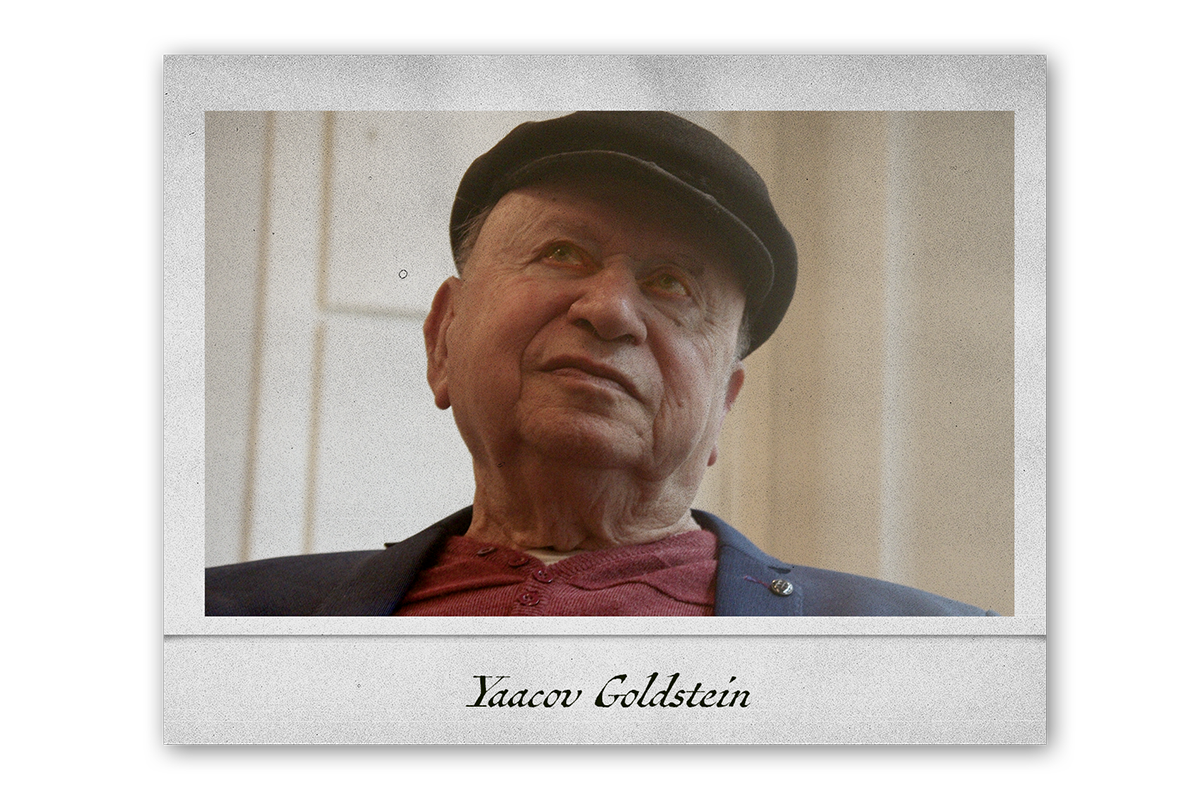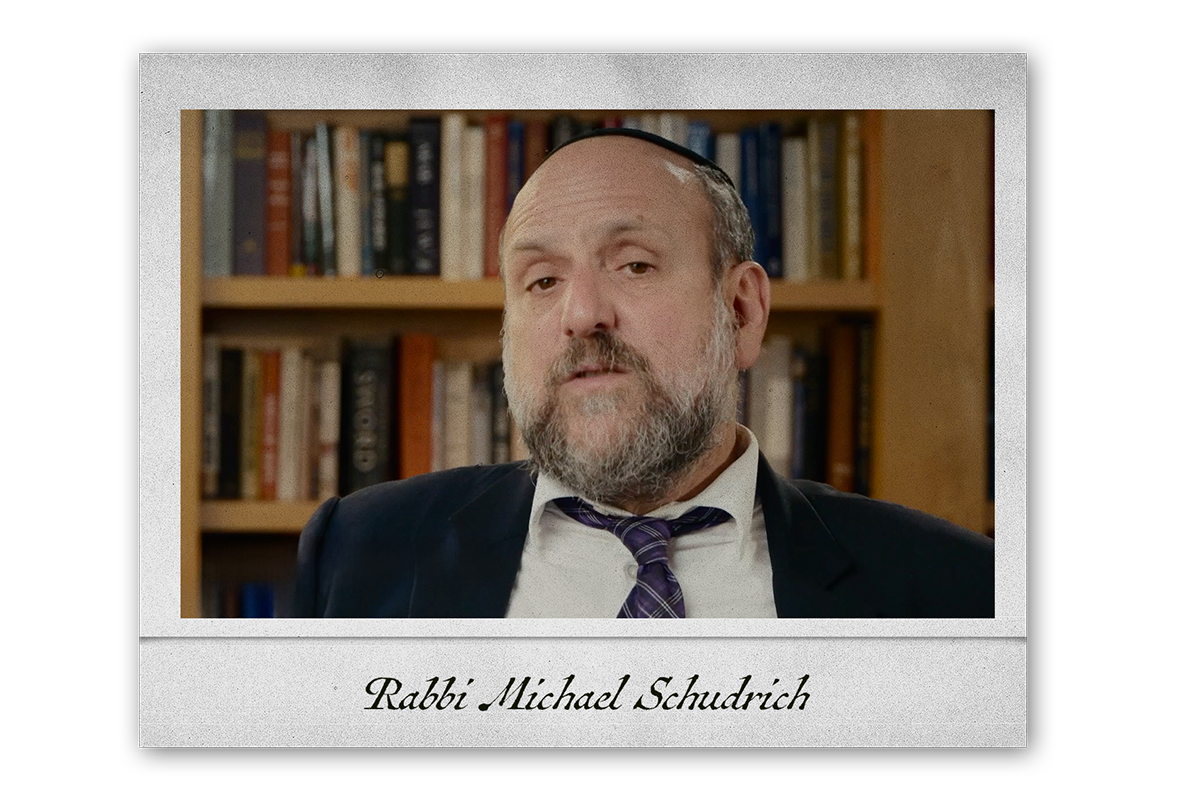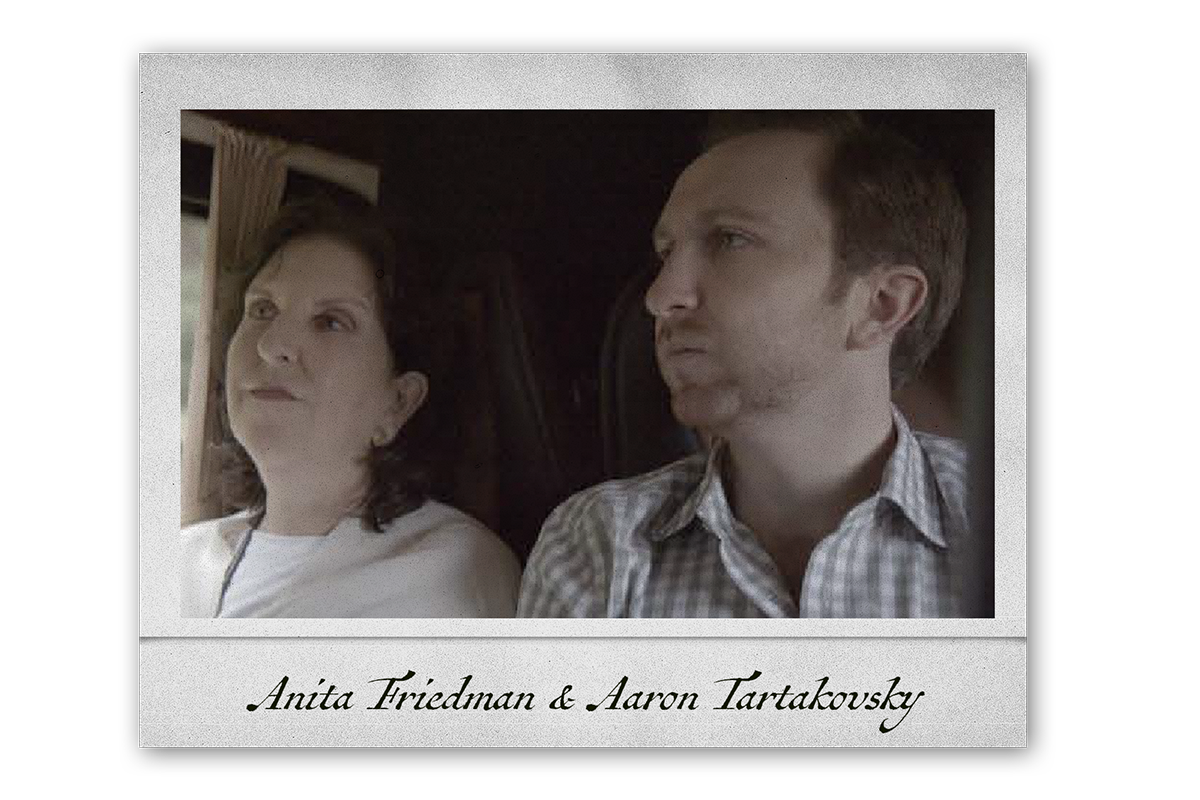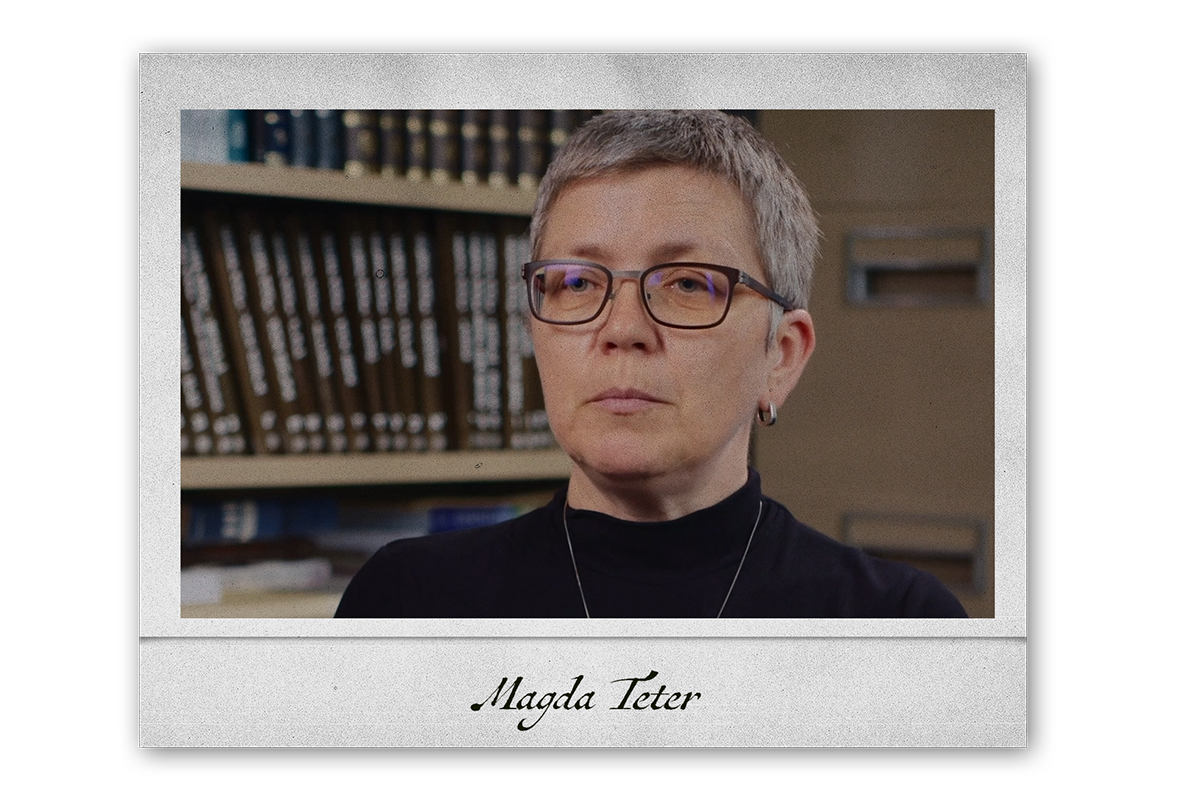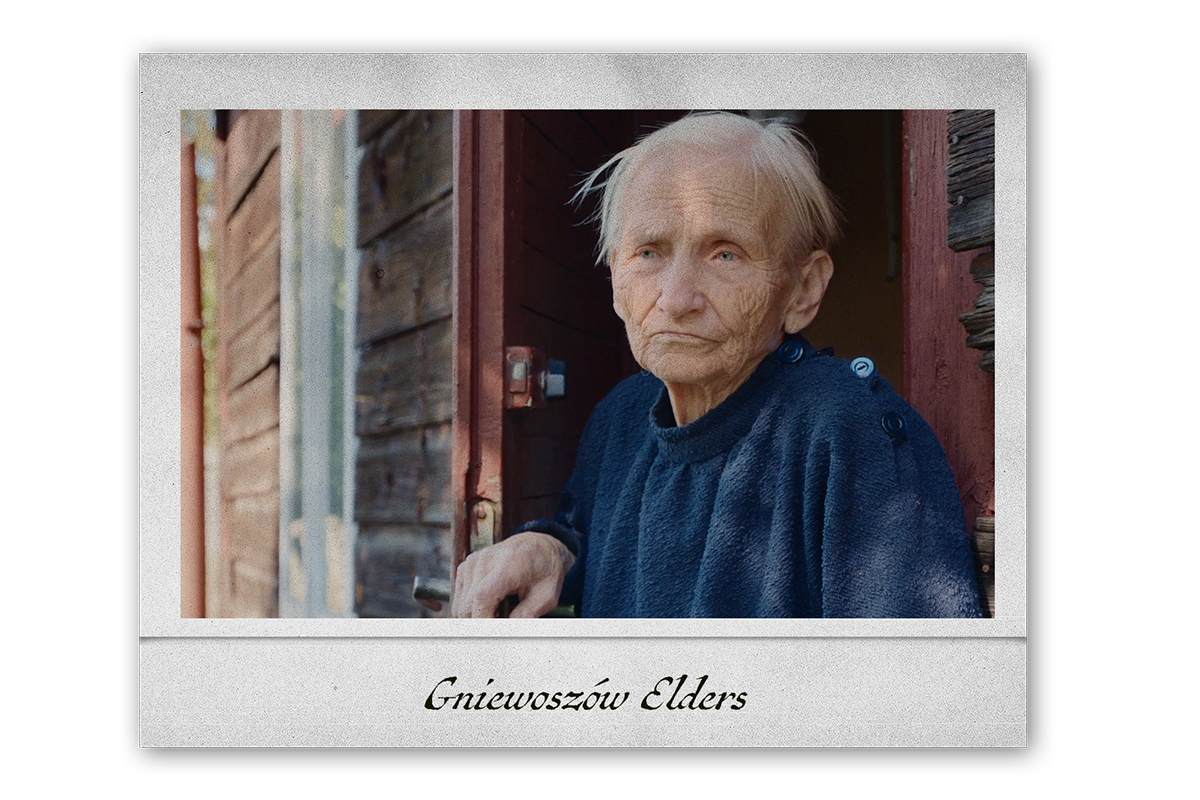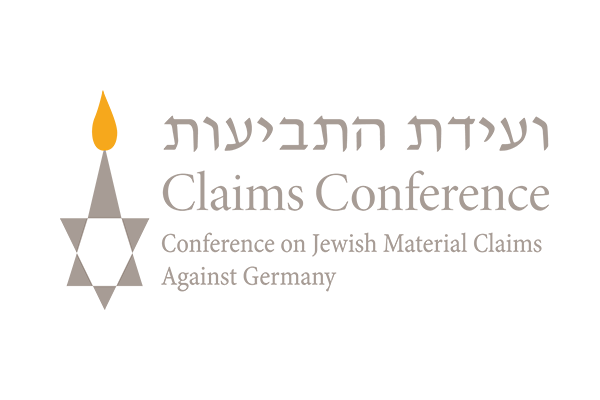
NEW DOCUMENTARY BY AWARD-WINNING FILMMAKER YOAV POTASH
In a town where history has been silenced, an eyewitness to murder speaks out in search of the boy she loved.
If you’ve seen Among Neighbors, please rate and review it online. A few words and a 10-star rating will help new audiences discover the film and keep it in theaters.
ABOUT THE FILM
Decades after the Holocaust, award-winning American filmmaker Yoav Potash (Crime After Crime, Sundance Film Festival) unearths the haunting mysteries of a small Polish town where people of two different faiths lived side by side for centuries.
At its heart, the film focuses on two individuals who lived through the peril of World War II and its aftermath: Yaacov Goldstein, a Holocaust survivor whose harrowing story exposes both the heights of human compassion and the depths of cruelty and Pelagia Radecka, an eyewitness to when five Jews were murdered, not by the Nazis but by her own Polish neighbors, six months after the end of World War II.
Breaking decades of silence for this film, they share secrets they have held for a lifetime, and their experiences are brought to life in stunning animated sequences, enriched by artful touches of magical realism. Together, their accounts illuminate the darkest chapter of Poland’s history.
As attempts to rewrite this history in favor of a more politically convenient narrative gain momentum, Among Neighbors offers a powerful counterpoint. Revealing a tale of love and murder spanning seven decades, the film boldly asserts that true patriotism lies in facing history honestly, no matter how painful the truths may be. As life imitates art, political extremists and historical revisionists in Poland, including its president, have now called for the film itself to be banned.


FILMMAKERS
YOAV POTASH
Producer, Writer & Director
Yoav Potash is an award-winning writer, director, and producer. He produced and directed the Sundance premiere documentary Crime After Crime, a New York Times Critics’ Pick and winner of 25 honors, including a Robert F. Kennedy Journalism Award, the National Board of Review Freedom of Expression Award, and six audience awards. The documentary had a national primetime broadcast on the Oprah Winfrey Network, streamed on Netflix, and is now available on Amazon Prime. The film helped spark movements to change domestic violence law in multiple US states. Yoav also directed the San Francisco IndieFest Jury Prize-winning documentary Food Stamped, which was nationally broadcast on Pivot, Participant Media’s cable/satellite network. Yoav is an alumnus of UC Berkeley, where he received the university’s top prize in creative writing.
DR. ANITA FRIEDMAN
Executive Producer
The daughter of Holocaust survivors, Dr. Anita Friedman is a renowned leader in philanthropy, Holocaust education, and non-profit management. An expert in Holocaust and genocide education, Dr. Friedman oversees the JFCS Holocaust Center in San Francisco, where she spearheaded the publication of Rywka’s Diary (HarperCollins), a one-of-a kind Holocaust diary now translated into 15 languages. She chairs California’s Governor’s Council for Holocaust and Genocide Education, and serves as Vice President of Tel Aviv University’s Board of Governors and founder of its Koret Center for Jewish Civilization. She has earned many prestigious honors, including the AJC’s Global Light Unto the Nations Award.
LAUREN SCHWARTZMAN
Editor
Lauren Schwartzman was the Associate Producer and Assistant Editor for the Oscar-nominated documentary Crip Camp, and the Associate Editor for The Disappearance of Shere Hite, a 2023 Sundance Film Festival premiere. Lauren holds a Masters of Journalism in documentary film from the U.C. Berkeley Graduate School of Journalism. Her thesis film, Dust Rising, won a Student Academy Award, was shortlisted for the BAFTA Student Film Awards, and screened in festivals across the U.S.
AARON I. BUTLER, ACE
Editor
Aaron I. Butler is an award-winning producer and editor of a wealth of documentary and narrative films. He is currently a Series Editor for the Emmy award-winning HBO drama Euphoria. His credits include the Emmy Award-winning documentary Out of Iraq, the Sundance and HBO documentary Cries From Syria, the Emmy-nominated CNN documentary series The Sixties, the IDA award-winning Showtime documentary series Time of Death, the Emmy and Eddie-nominated HBO documentary American Winter, and the Emmy-nominated PBS documentary series The Rise and Fall of Jim Crow. His narrative film work includes I Am Michael (Sundance Film Festival), In Dubious Battle (Venice Film Festival), and JT LeRoy (Toronto International Film Festival).
BLAŻEJ PYRKA
Cinematographer
Błażej Pyrka is a seasoned Polish cinematographer who travels the world, serving as a director of photography on documentary productions broadcast on Canal+, DW, TVP, and other European networks. A licensed drone cinematographer and a graduate of the Academy of Fine Arts in Łódź, he received a Distinction Award at the Losy Polaków Festival in 2023.
JOSÉ GARNELO
Director of Animation
Yaacov’s Scenes
José Garnelo is an animator and artist based in Galicia (Spain) who creates original animation and artwork for feature films, video games, short films, and commercials. He has worked as an animator on projects including the acclaimed animated feature Bird Boy: The Forgotten Children, which won a Goya Award for Best Animated Film, the short film Grand Adventure Railroad, winner of the Best Animation Prize at the Taipei Film Festival, and the animated indie feature Left Hook, which earned the Best Animated Feature title at the Top Indie Film Awards. He attended the Cinema and Audiovisual School of Catalonia where he graduated in Cinema in the specialty of Film Direction. He also produces electronic music under the moniker of Pálida.
MARCIN PODOLEC
Director of Animation
Pelagia’s Scenes
Marcin Podolec is a comic book artist, animator, and founder of Yellow Tapir Films, a 2D animation studio based in Łódź, Poland. As an animation director, he is best known for short films, including the Iran/Iraq war film We Have One Heart, winner of the Chicago International Film Festival’s Golden Hugo Award for Best Documentary Short, Dokument, which screened at over 60 film festivals internationally and was the opening film at DOK Leipzig 2015, and Colaholic, winner of the Grand Prix at Banjaluka International Animated Film Festival in Yugoslavia. He has also authored fifteen highly regarded and award-winning comic books, and his artwork has been exhibited internationally.
DIRECTOR’S STATEMENT
Filmmaker Yoav Potash as a boy with his mother, at home in California, in front of a sketch of Old World rabbi
Filming with Pelagia Radecka near the site of the murders she witnessed 74 years earlier
Yoav interviewing senior Polish diplomat Piotr Wilczek
Growing up as a Jewish kid in sunny southern California — the son of an American-Jewish redhead and an olive-skinned Israeli father — I only caught passing glimpses of our family’s roots in “the Old Country.” I saw them in a framed charcoal sketch that hung over our fireplace, depicting a group of Talmudic rabbis who looked nothing like anyone in my family. No living person, anyway.
And I heard echoes of our Eastern European Jewish heritage in the Yiddish words that peppered our English — words like schlep, which means to drag or carry something, especially when either you or the thing don't really want to be involved in this dragging or carrying. And also the word shtetl, which I eventually understood meant a small, rural Jewish town or village. But the word always had a mythical quality to it because shtetls now only appeared in folktales.
As I got older I wondered what this lost world was like, and why it disappeared. Of course I learned that six million Jews were murdered in the Holocaust — but I also learned that over three million European Jews survived. And yet, of the tens of thousands of shtetls that existed before World War II, none continued to exist as Jewish towns after the war. This sad mystery cloaked the legend of these shtetls like an impenetrable, dark fog.
Then, near the end of 2014, I was invited to Poland by my friends, Aaron Friedman Tartakovsky and Aaron’s mother Anita Friedman, to film the rededication of the Jewish cemetery in their ancestral town of Gniewoszów. I had no plans to make a feature documentary, but the chance to visit a shtetl — or what remained of one — intrigued me. I spent extra time in Gniewoszów interviewing Polish elders to see what they recalled about the era in which Jews were their neighbors — their bakers, butchers, tailors, and shoemakers, and for the children, their playmates. The first memories shared by these elders fondly depicted Jewish/Polish coexistence, but eventually, these individuals also described or revealed strains of antisemitism –– and they admitted that Poles murdered Jews in their town long after the defeat of Nazi Germany. The most heartfelt such account eventually came from Pelagia Radecka, age 85 during our first interview, who gave searing eyewitness testimony about those murders — and who sought my help in finding Janek Weinberg, the surviving child of two of the victims.
Then, in 2018, Poland’s government outlawed speech that blamed Poland for any part in the Holocaust. This legislation, championed by the ruling nationalist Law and Justice party, amounted to a blatant criminalization of historical accounts precisely like the ones I had been filming, and it ratcheted up this story’s connection to potent issues of our day, including nationalism, the reemergence of authoritarianism, and the fight for historical truth in the era of “fake news” denialism. As I followed every lead connected to this small town, I found the last living Holocaust survivor born in Gniewoszów, as well as answers to burning questions Pelagia had been asking for over seven decades.
The guiding ethic of my filmmaking practice on this project is to protect, support, and elevate the eyewitnesses — those aging individuals who were alive to witness a period of history that is now being debated, recast, and whitewashed for political purposes. I am also proud to be collaborating with Polish cinematographers and animators who are helping me tell this story in a way that is authentic to Polish culture and history. Like our subjects, they have bravely committed themselves to revealing hard truths at a time when Polish journalists and historians who deliver so-called “anti-Polish” or “unpatriotic” messaging have faced reprisals from government officials and from a large, nationalistic sector of Polish society. Collectively, our ethic is to use our storytelling tools truthfully, pushing back against a repressive narrative with authenticated, emotionally moving accounts of the past.
As a Jewish filmmaker, I have also found that this project has sometimes thrust me into a kind of ambassador role, whether I sought out such a role or not. Some of the elders I interviewed were thrilled to speak at length to a Jewish person — and with such a nice, big camera! I seemed to be the ideal outlet for childhood memories of playmates and candy shops, tales that they — in their final years — needed to entrust to a caretaker. At other times, such as when I interviewed the Polish Ambassador to the United States, or when I discovered that a father and son I interviewed had a stolen Jewish tombstone in their backyard, I felt obliged to advocate for change, be it a matter of national government policy or the return of a specific ritual object. In these circumstances, I have worked to navigate the ethics of being a filmmaker, a Jew, and a participant in the story in a manner that is transparent, honest, and human.
— Yoav Potash, Director & Producer, AMONG NEIGHBORS
FEATURING
PELAGIA RADECKA
Polish eyewitness to murder
85 years old when we first meet her, Pelagia still holds memories of her Jewish neighbors, the Weinbergs, close to her heart―and she remains both outraged and haunted by their murders. Threatened by the killers after witnessing the crime as a 15-year-old girl, and threatened again today by the highest ranks of the Polish government, Pelagia risks spending her final days in prison in order to offer her testimony to the world. She breaks over seven decades of silence for this film, all in hopes of finding Janek Weinberg, the Jewish boy she loved.
YAACOV GOLDSTEIN
Holocaust survivor
Born in 1933, Yaacov Goldstein is one of the last Jews alive who can recall prewar life in Gniewoszów, an era he describes as a “magic story” despite underlying tensions in Jewish-Polish relations. His wartime experiences, which come to life in vivid animation as he describes them, include jumping from a moving wagon headed for a death camp, hiding for two years in a storage nook so small he could not straighten his legs, and escaping execution by firing squad thanks to “a miracle.”
RABBI MICHAEL SCHUDRICH
Chief Rabbi of Poland
As the Chief Rabbi of Poland since 2006, Michael Schudrich nurtures Poland's small but growing Jewish community, and works to protect Poland's Jewish heritage, including the mass graves of the Holocaust that dot the Polish countryside. In 2018, he was thrown into a political whirlwind when Poland passed a law that banned accusations of Polish complicity in the Holocaust. Rabbi Schudrich appears in both verité footage of mass grave investigations and in interviews, offering perceptive and blunt assessments of Jewish-Polish relations.
SŁAWOMIR & HENRYK SMOLARCZYK
Father and son in possession of a stolen Jewish tombstone
In many ways, Henryk and his son Sławomir represent the past and present of Poland. Henryk shares fond memories of playing with Jewish children in the streets of Gniewoszow before World War Il, but Sławomir is reluctant to return a Jewish tombstone lying in their backyard junk pile. The father and son each tell a different story about how they came to possess the tombstone, and the filmmaker's desire to return it to the cemetery forces a telling confrontation that unfolds with cameras rolling.
ANITA FRIEDMAN & AARON TARTAKOVSKY
American-born descendants of Jews from Gniewoszów
As the American-born daughter and grandson of a Holocaust survivor from Gniewoszów, Anita Friedman and her youngest son Aaron have roots in the town that go back hundreds of years. But when they finally visit Gniewoszow in 2005, they are forced out by antisemites. Undeterred, they commit to preserving the memory of the destroyed Jewish community of Gniewoszow - a goal that leads them to discover a mass grave of Jews murdered six months after World War II.
PIOTR WILCZEK
Polish Ambassador to the United States
As Poland's Ambassador to the United States from 2016 to 2023, Piotr Wilczek defends the nation's right wing Law and Justice party. In an exclusive and sometimes combative interview, Wilczek argues that Poland is no more antisemitic than other countries, asserting that the "very one-sided, very sensational" media is largely to blame for the international condemnation of Poland's Holocaust law.
KONSTANTY GEBERT
Award-winning Polish/Jewish journalist and social critic known for his wit and insight
An award-winning Polish/Jewish journalist known for his wit and insight, Gebert has been one of the most vocal critics of Poland's effort to silence accounts of Polish complicity in the Holocaust. With colorful metaphor and deft argument, he asserts that Jews are still suffering from their Polish phantom pains, while Poles are still suffering from their Jewish phantom pains.
MAGDA TETER
Historian and author of award-winning books
A professor of history at Fordham University, Magda Teter is the author of Christian Supremacy: Reckoning with the Roots of Antisemitism and Racism (2023) and Blood Libel: On the Trail of An Antisemitic Myth (2020), which won the National Jewish Book Award and The George L. Mosse Prize from the American Historical Association. In "Among Neighbors," she traces the historical libelous roots of antisemitism, and emphasizes the importance of confronting even the darkest and most shameful parts of our national histories.
ŁUKASZ BAKSIK
Polish photographer
Polish photographer Lukasz Baksik spent ten years documenting the widespread theft and misuse of Hebrew tombstones across Poland. His beautiful and haunting large format, black and white photos were collected and published in a book entitled Matzevot for Everyday Use, which uses the Hebrew word for Jewish tombstones.
ALEKSANDER SCHWARZ
Mass graves investigator
A mass graves investigator who has worked to locate and commemorate hundreds of mass graves across Poland, Aleksander Schwarz is an expert in non-invasive research and Jewish religious law. His process includes the use of archival and historical research, cartography, and witness interviews, as well as modern technologies such as ground penetrating radar and satellite imagery.
GNIEWOSZÓW ELDERS
The last eyewitnesses to Jewish life in their town
Our chorus of Gniewoszów elders confirms how some Poles attempted to save Jewish lives during World War II, while others murdered them in cold blood. All but two of these seniors have passed away since they were interviewed, and the film presents their final testimony.
FUNDERS & PARTNERS
AMONG NEIGHBORS was made with the generous support of the following organizations.
